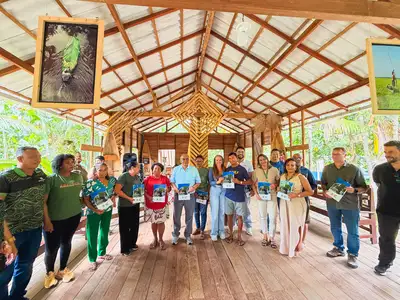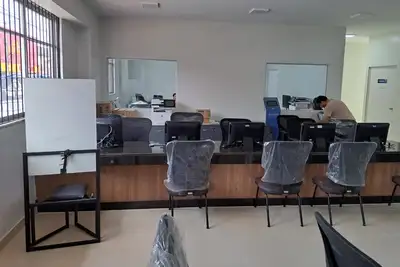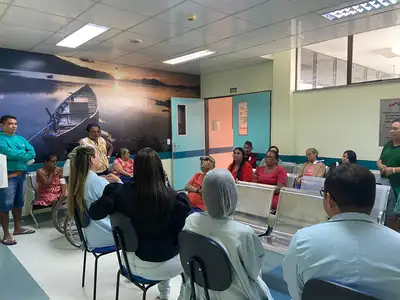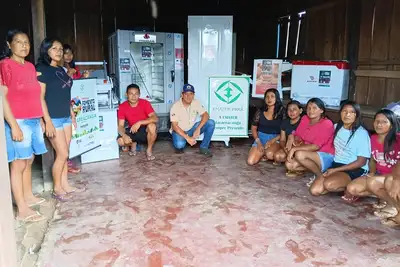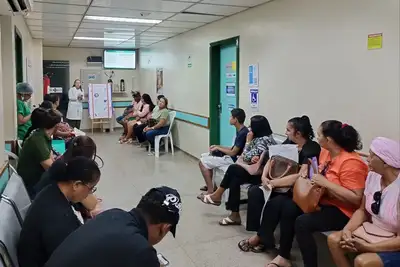Ideflor-Bio highlights legal and environmental innovation from Pará in a panel at COP30
Participants followed a detailed explanation about the functioning of the CPA as a compensation mechanism for rural properties with a legal reserve liability consolidated until July 2008
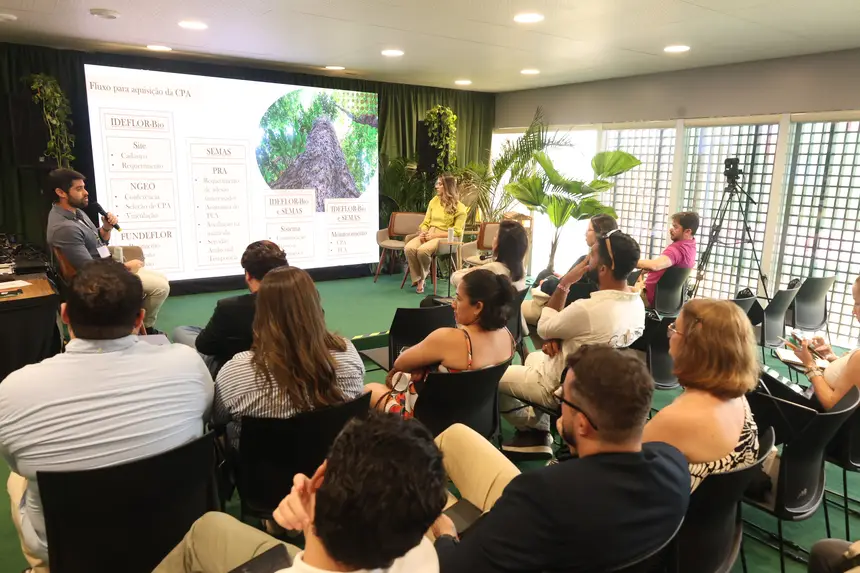
The Institute of Forest Development and Biodiversity (Ideflor-Bio) presented, this Thursday (20), at the Pará Pavilion, in the Green Zone of COP30, the panel "Environmental Protection Quotas (CPA): Public policy to boost environmental regularization of rural properties and the protection of biodiversity, as a strategy to face climate change."
Led by the municipal attorney Elen Moura and technical advisor Thiago Valente, the meeting brought together representatives from various sectors to discuss the advances and challenges of the instrument, conceived by the Government of Pará to integrate environmental conservation, legal security, and rural development.
Throughout the presentation, the duo detailed the technical and legal aspects of the CPA, reinforcing its strategic role in the State's environmental policy. Valente and Moura emphasized that the instrument offers predictability, transparency, and effectiveness to the regularization processes, strengthening the public authority's capacity to meet society's demands.
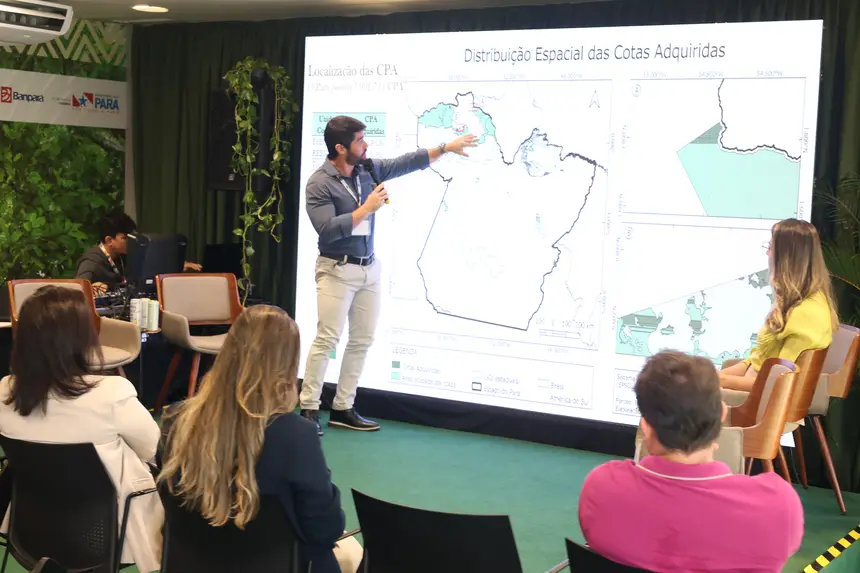
“Taking advantage of the moment of COP30 to socialize and promote such an important public policy is extremely timely,” said Thiago Valente, highlighting that the CPA consolidates “the union of two agendas that have historically been antagonistic: production and conservation,” he added.
Environmental regularization - Participants followed a detailed explanation about the functioning of the CPA as a compensation mechanism for rural properties with a legal reserve liability consolidated until July 2008. In these cases, the producer can acquire quotas linked to state-protected areas, equivalent to one hectare of forest per unit, with accessible values: R$ 100 per hectare per year or R$ 900 upfront, with a 40% discount and validity of 15 years.
According to Valente, the progress has been consistent. “We already have rural properties in 33 municipalities that have joined the system and almost 23,000 quotas acquired. The demand has been increasing more and more, and this means greater competitiveness, more access to markets, and recognition of environmental regularization.”
In addition to the quotas aimed at legal compensation, the panel also addressed the non-compensatory quota, intended for individuals and legal entities interested in voluntarily contributing to the protection of biodiversity. With a value of R$ 60.00 per hectare, the mechanism has become an additional channel to raise permanent resources for the 29 state conservation units, ensuring financial sustainability for preservation actions.
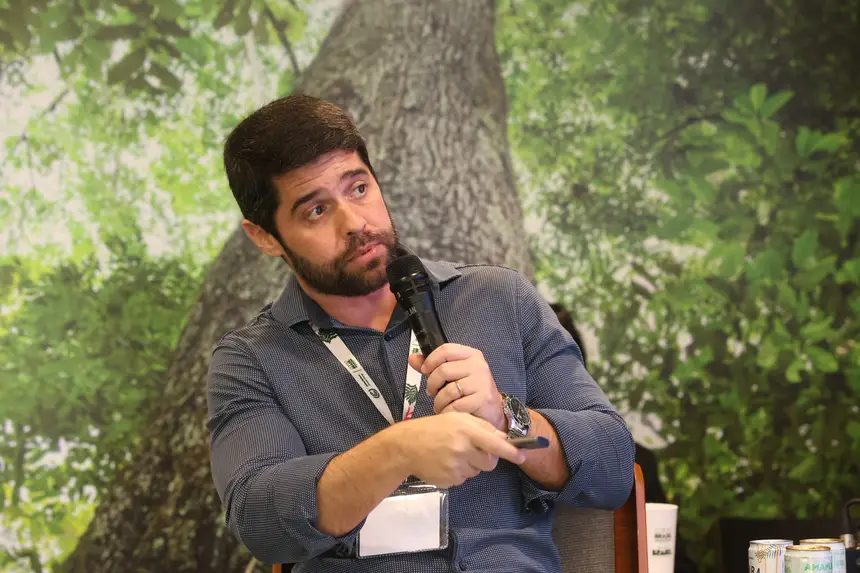
Legal security - The municipal attorney Elen Moura reinforced that legal security is one of the pillars of the policy. She explained that the digital system for acquiring quotas ensures the integrity of forest cover and the land regularity of the linked areas. “With the CPA, there is zero risk for the rural producer. They have the security that the title has backing, it is an area that exists, is legal, and will be permanently protected. It is an effective regularization, based on legal security,” she emphasized. Moura also highlighted that the CPA addresses historical shortcomings in the sector by offering a safe and structured means to exit illegality.
For Elen, the instrument also helps to transform the national regularization scenario: “The scenario of illegality is still attractive due to the structural deficiencies of the country. With the CPA, we offer effective means for the producer to regularize with security and, at the same time, promote the implementation of protected areas. It is a very interesting link: they regularize their property and contribute to the conservation of the State.”
Innovation - The president of Ideflor-Bio, Nilson Pinto, highlighted the transformative dimension of the public policy, which inaugurates a new model of integration between production and forest in Pará. “Economic production finances environmental protection. And environmental protection enables economic production. This is the logic of a policy that has the power to unite two historical interests of Pará: the development of the countryside and the conservation of the forest,” he stated. For him, the CPA consolidates a modern vision, with a direct impact on the State's climate commitments.
Nilson Pinto also reinforced that the strengthening of the CPA has international potential. “We are building a public policy of global impact. The CPA reinforces our responsibility to the Amazonian biodiversity while creating opportunities for the countryside. It is an instrument that demonstrates how Pará can lead innovative solutions to the environmental and economic challenges of the 21st century,” he concluded.



